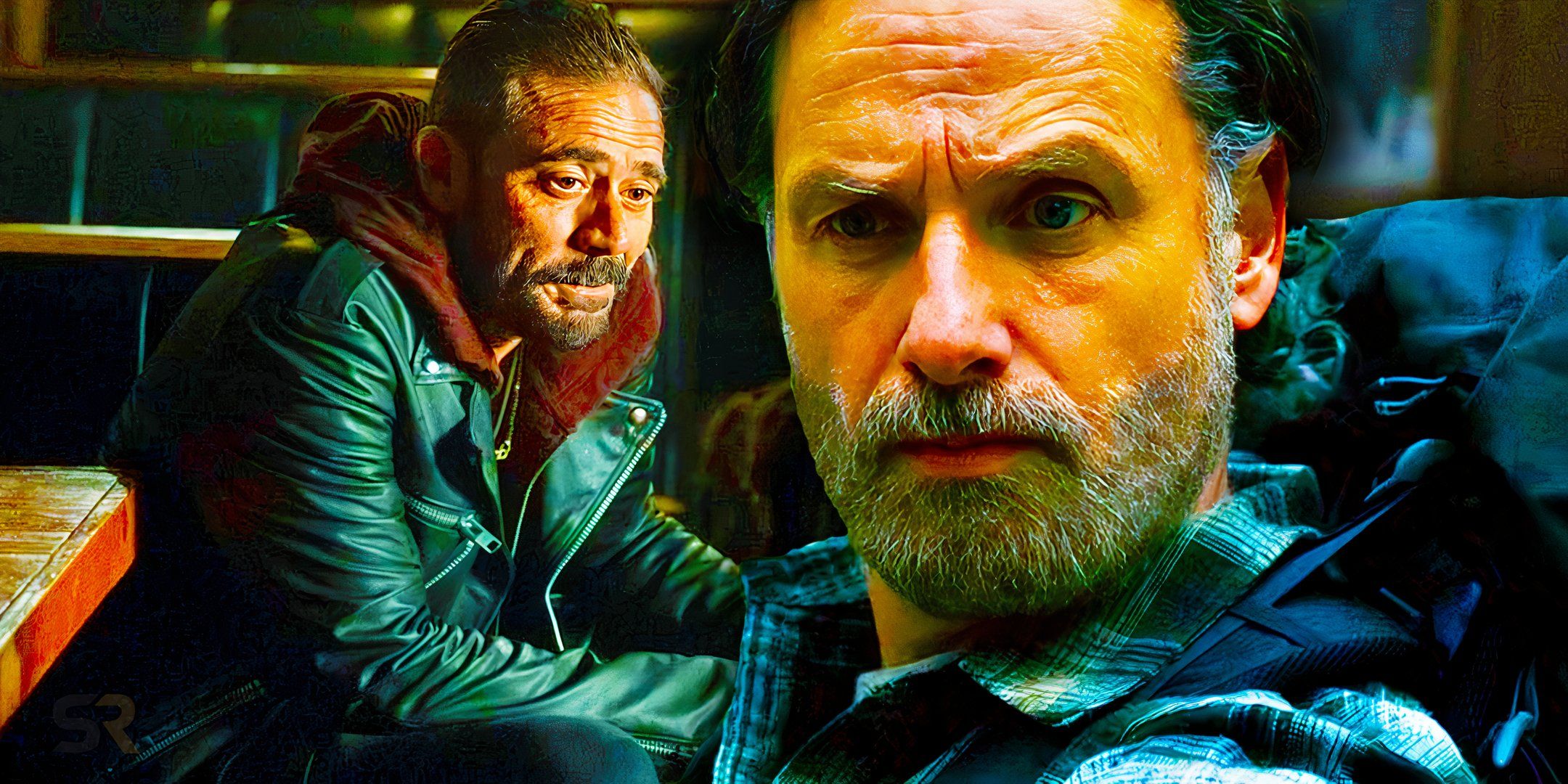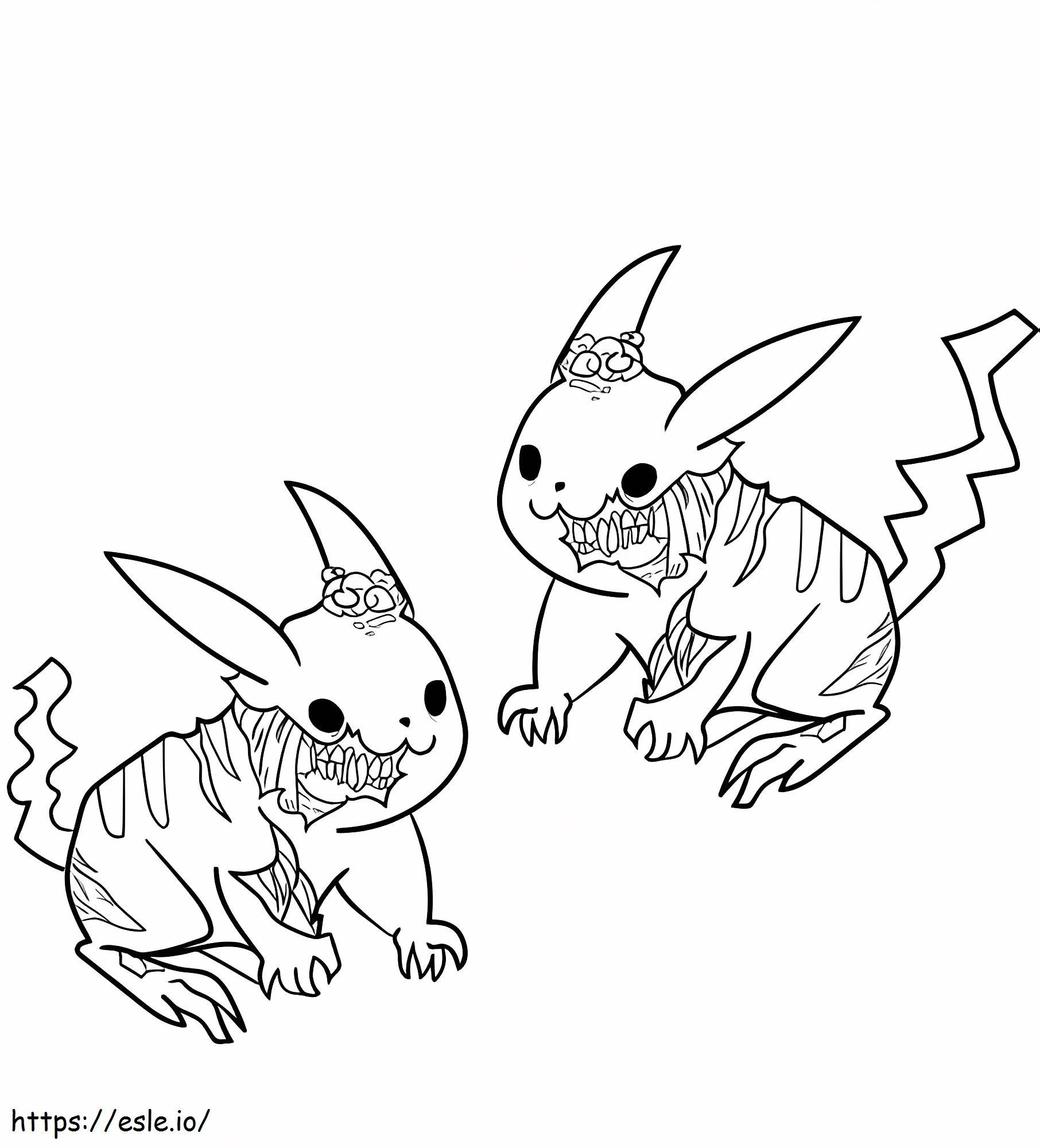Carl Grimes' death in The Walking Dead marks one of the most pivotal and emotionally charged moments in the series. Fans of the show were left devastated when Carl, portrayed by Chandler Riggs, met his tragic end after being bitten by a walker. The storyline not only shocked viewers but also reshaped the narrative trajectory of the entire series. For years, Carl had been a central figure in The Walking Dead universe, representing hope, resilience, and the next generation of survivors. His death was a reminder that in the brutal world of the apocalypse, no character is truly safe.
The significance of Carl's death extends beyond the emotional impact on the audience. It served as a catalyst for character development, particularly for Rick Grimes, his father, who had always fought to protect his son. Carl's passing forced Rick to confront his own beliefs about survival, leadership, and the future of humanity. This moment also highlighted the series' commitment to delivering raw, unfiltered storytelling that challenges viewers' expectations. As we delve deeper into the circumstances surrounding Carl's death, we'll explore how it affected other characters, the broader narrative, and why this moment remains unforgettable for fans worldwide.
In this article, we will dissect the events leading up to Carl's death, its aftermath, and the lasting legacy it left on The Walking Dead. From analyzing the emotional weight of the storyline to understanding its implications for the show's overarching themes, this piece aims to provide a comprehensive look at one of the series' most defining moments. Whether you're a long-time fan or new to the world of The Walking Dead, this exploration of Carl's death will offer valuable insights into why it continues to resonate with audiences.
Read also:Who Is Monica Married To Now A Comprehensive Look Into Her Life And Relationships
Table of Contents
- Biography of Carl Grimes
- The Fateful Day: Carl's Bite
- Emotional Impact on the Characters
- Carl's Death and Its Narrative Significance
- Fan Reactions and Cultural Impact
- Symbolism and Themes in Carl's Death
- Behind the Scenes: Decisions Surrounding Carl's Death
- Carl's Legacy in The Walking Dead
- The Future of The Walking Dead After Carl
- Conclusion and Reflections
Biography of Carl Grimes
Carl Grimes, portrayed by Chandler Riggs, is one of the most iconic characters in The Walking Dead. Introduced in the first season as the son of Rick and Lori Grimes, Carl quickly evolved from a frightened child into a hardened survivor. His journey throughout the series was marked by moments of bravery, loss, and growth, making him a fan-favorite character. Below is a detailed look at Carl's personal data and biography:
| Full Name | Carl Grimes |
|---|---|
| Portrayed By | Chandler Riggs |
| First Appearance | Season 1, Episode 1 ("Days Gone Bye") |
| Last Appearance | Season 8, Episode 9 ("Honor") |
| Age at Death | 13 |
| Parents | Rick Grimes (father), Lori Grimes (mother) |
| Notable Traits | Brave, resilient, compassionate, and determined |
Early Life and Survival
Carl was born into a world on the brink of collapse, with the apocalypse unfolding shortly after his father, Rick, was shot and hospitalized. Separated from his parents, Carl and his mother, Lori, were taken in by a group of survivors led by Shane Walsh. When Rick awoke from his coma and reunited with his family, Carl's life took a dramatic turn. He witnessed the harsh realities of the apocalypse firsthand, losing innocence as he adapted to the new world.
Key Moments in Carl's Journey
- Shooting Shane: One of Carl's defining moments was when he shot Shane Walsh to save his father, marking his transition from a child to a survivor.
- Losing Lori: Carl was present during his mother's death during childbirth, an event that deeply affected him and shaped his resilience.
- Leadership and Compassion: Throughout the series, Carl demonstrated leadership qualities, often advocating for compassion and humanity in a brutal world.
Carl's character arc was a testament to his growth and the challenges he faced. His death in Season 8 left a lasting impact on the series, reshaping the narrative and the lives of those around him.
The Fateful Day: Carl's Bite
The events leading up to Carl Grimes' death in The Walking Dead were both shocking and emotionally devastating. It all began during a seemingly routine mission outside the walls of Alexandria. Carl, along with his father Rick and a few others, ventured out to scout for supplies and assess the threat posed by the Saviors. Unbeknownst to them, a group of walkers had infiltrated the area, setting the stage for tragedy.
During the mission, Carl made the fateful decision to explore a nearby building alone. His curiosity and desire to prove himself as a capable survivor led him to take unnecessary risks. Inside the building, Carl encountered a lone walker hiding in the shadows. Despite his experience and skills, he underestimated the threat. In a moment of carelessness, Carl was bitten on his side, a wound that would ultimately seal his fate.
The Immediate Aftermath
When Rick and the others discovered Carl's injury, the gravity of the situation became clear. Carl's bite was not just a physical wound but a death sentence in the world of The Walking Dead. The group immediately rushed back to Alexandria, where they prepared for the inevitable. Carl, however, remained calm and composed, displaying remarkable maturity for someone so young. He used his final hours to reflect on his life, express his love for his family, and share his hopes for the future.
Read also:Net Worth Of Allu Aravind A Comprehensive Guide To His Wealth And Career
In his final moments, Carl wrote letters to his loved ones, urging them to continue fighting for a better world. His unwavering optimism and belief in humanity's potential served as a poignant reminder of the values he stood for. Carl's death was not just a personal tragedy for Rick and the group but also a turning point that forced them to confront their own beliefs and priorities.
Emotional Impact on the Characters
Carl Grimes' death sent shockwaves through the core group of survivors, leaving an indelible mark on their emotional and psychological states. The loss of Carl was particularly devastating for his father, Rick Grimes, who had spent years protecting his son in a world filled with relentless danger. Rick's grief was palpable, as he struggled to reconcile the loss of his child with his role as a leader. In the aftermath of Carl's death, Rick's demeanor shifted dramatically. He became introspective, questioning the purpose of his fight and the sacrifices he had made. Carl's final words, urging his father to embrace a future of peace and compassion, became a guiding light for Rick's transformation as a character.
Impact on Other Key Characters
Carl's death also had profound effects on other members of the group. Michonne, who had become a maternal figure to Carl, was overwhelmed with guilt and sorrow. Her bond with Carl had been one of the few sources of stability in her life, and his passing left her questioning her ability to protect those she cared about. Similarly, Judith, Carl's younger sister, was too young to fully comprehend the loss but would grow up in a world shaped by the absence of her brother's influence.
The emotional fallout extended beyond Rick's immediate family. Characters like Daryl Dixon and Maggie Rhee found themselves grappling with the fragility of life in the apocalypse. Carl's death served as a sobering reminder that even the strongest and most resilient individuals were not immune to tragedy. This shared grief brought the group closer together, reinforcing their bonds and commitment to Carl's vision of a better future.
A Catalyst for Change
For many characters, Carl's death became a catalyst for personal growth and change. His unwavering belief in humanity's potential inspired others to reevaluate their priorities. The group began to focus more on building a peaceful future rather than perpetuating cycles of violence. Carl's legacy lived on through the actions of those he left behind, as they worked to honor his memory by striving for a world where hope and compassion could prevail.
Carl's Death and Its Narrative Significance
Carl Grimes' death in The Walking Dead was not merely a tragic event but a narrative turning point that reshaped the series' trajectory. His passing served as a stark reminder of the show's central theme: the fragility of life in a post-apocalyptic world. Unlike other deaths in the series, Carl's demise carried a unique weight due to his role as a symbol of hope and resilience. His journey from a frightened child to a courageous survivor embodied the potential for humanity to adapt and thrive, even in the face of unimaginable adversity. When Carl was lost, it was as though the series itself lost a piece of its soul, forcing both characters and viewers to confront the harsh realities of survival.
Impact on the Series' Themes
Carl's death also amplified the show's exploration of moral dilemmas and the cost of leadership. Throughout the series, Rick Grimes had been driven by a singular mission: to protect his family, particularly Carl. With Carl gone, Rick was forced to reevaluate his priorities and the sacrifices he had made in the name of survival. This introspection led to a significant shift in Rick's character, as he began to embrace Carl's vision of a peaceful future. The narrative transitioned from a focus on survival and conflict to one of rebuilding and reconciliation, with Carl's ideals serving as a guiding light.
Contrast with Other Deaths
While The Walking Dead is known for its high-stakes storytelling and frequent character deaths, Carl's passing stood out for its emotional depth and narrative consequences. Unlike the deaths of characters like Glenn or Abraham, which were shocking and brutal, Carl's death was more introspective. It was not just about the loss of a beloved character but about the loss of potential and the future he represented. His death forced other characters to confront their own mortality and the legacy they wished to leave behind. In this way, Carl's death became a defining moment that elevated the series' storytelling and solidified its place as a thought-provoking exploration of human resilience and hope.
Fan Reactions and Cultural Impact
Carl Grimes' death in The Walking Dead sparked a whirlwind of reactions from fans and critics alike, cementing its place as one of the most controversial and talked-about moments in the series. Social media platforms were flooded with emotional responses, ranging from disbelief and anger to heartfelt tributes. Many fans expressed frustration, questioning the decision to kill off a character who had been a central figure since the show's inception. Hashtags like #SaveCarl and #CarlDeservedBetter trended on Twitter, showcasing the depth of attachment viewers had developed for Carl over the years.
Emotional Resonance and Criticism
For many fans, Carl's death felt like a betrayal of the character's arc. He had evolved from a frightened child into a symbol of hope and resilience, embodying the potential for humanity to rebuild and thrive in a broken world. His passing left a void that many felt could not be filled, and some critics argued that the decision undermined the show's emotional stakes. Others, however, praised the boldness of the storyline, noting that it reinforced The Walking Dead's commitment to delivering raw, unpredictable storytelling. This dichotomy of reactions highlighted the cultural impact of Carl's death, as it sparked debates about the nature of storytelling in serialized television.
Legacy in Pop Culture
Carl's death also left a lasting imprint on pop culture, becoming a defining moment in the series' legacy. His final scenes, particularly his heartfelt goodbye to Rick and his vision of a peaceful future, were widely discussed and

